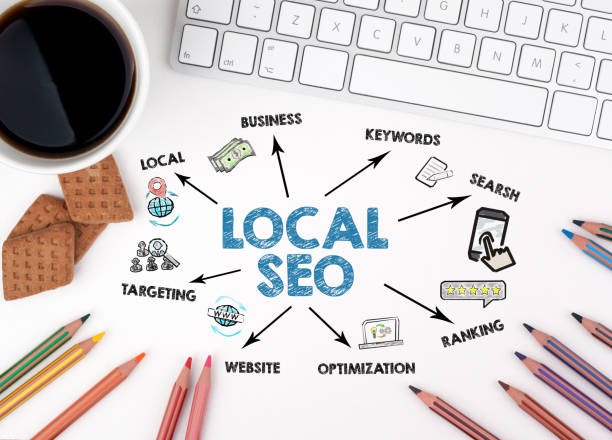What is SEO? A Beginner’s Guide to Search Engine Optimization
In today’s digital world, having a website is no longer enough. You need to ensure that your website is visible to your target audience. This is where Search Engine Optimization (SEO) comes in. SEO is the practice of optimizing your website to rank higher in search engine results pages (SERPs), increasing organic (non-paid) traffic. This beginner’s guide will demystify SEO, explaining its core concepts, benefits, and practical strategies.
Why is SEO Important?
Think about the last time you needed information. You probably turned to a search engine like Google. Most people don’t venture beyond the first page of search results. This highlights the importance of SEO:
- Increased Visibility: Higher rankings mean more visibility to potential customers.
- Organic Traffic: SEO drives targeted traffic to your website without paying for ads.
- Credibility and Trust: Websites ranking high in search results are often perceived as more credible and trustworthy.
- Cost-Effective Marketing: Compared to paid advertising, SEO is a more cost-effective long-term marketing strategy.
- Better User Experience: SEO best practices often align with creating a better user experience on your website.
SEO Basics: How Search Engines Work

To understand SEO, it’s essential to understand how search engines work:
- Crawling: Search engines use “crawlers” or “bots” to discover and index web pages. These crawlers follow links from one page to another, building a vast index of the web.
- Indexing: Once a page is crawled, it’s analyzed and added to the search engine’s index. This index is a massive database of web pages.
- Ranking: When a user performs a search, the search engine retrieves relevant pages from its index and ranks them based on various factors, including relevance, authority, and user experience.
Key Components of SEO:
SEO can be broadly categorized into three main areas:
- On-Page SEO: Optimizing individual web pages to rank higher and earn more relevant traffic in search engines.
- Off-Page SEO: 1 Building your website’s authority and reputation through external factors like backlinks.
- Technical SEO: Optimizing the technical aspects of your website to make it easier for search engines to crawl and index.
On-Page SEO: Optimizing Your Web Pages
On-page SEO involves optimizing various elements within your web pages:
- Keyword Research: Identifying the keywords that your target audience uses when searching for products or services related to your business.
- Practical Tip: Use keyword research tools like Google Keyword Planner, Ahrefs, or SEMrush to find relevant keywords.
- Title Tags: Writing compelling and keyword-rich title tags for each page. The title tag is the clickable headline that appears in search results.
- Example: Instead of “Homepage,” use “Best Coffee Shop in [City] | Freshly Brewed Coffee & Pastries.”
- Meta Descriptions: Writing concise and informative meta descriptions that entice users to click on your website in search results. The meta description is the short summary that appears below the title tag.
- Header Tags (H1-H6): Using header tags to structure your content and highlight important information. The H1 tag is the main heading of your page.
- Content Optimization: Creating high-quality, relevant, and engaging content that satisfies user search intent.
- Actionable Advice: Focus on creating content that provides value to your audience and answers their questions.
- Image Optimization: Optimizing images by using descriptive file names and alt text. Alt text describes the image to search engines and screen readers.
- URL Optimization: Using short, descriptive, and keyword-rich URLs.
- Internal Linking: Linking between pages within your website to improve navigation and distribute link equity.
Off-Page SEO: Building Your Website’s Authority
Off-page SEO focuses on building your website’s authority and reputation through external factors:
- Backlink Building: Earning high-quality backlinks from other reputable websites. Backlinks are like votes of confidence from other websites.
- Real-World Example: Getting a link from a reputable industry blog or news website.
- Social Media Marketing: Promoting your website and content on social media platforms.
- Brand Mentions: Getting your brand mentioned on other websites and online platforms.
- Online Reputation Management: Monitoring and managing your online reputation.
Technical SEO: Optimizing Your Website’s Technical Aspects
Technical SEO focuses on optimizing the technical aspects of your website:
- Website Speed: Ensuring your website loads quickly.
- Practical Tip: Use tools like Google PageSpeed Insights to analyze your website’s speed and identify areas for improvement.
- Mobile-Friendliness: Ensuring your website is responsive and looks great on all devices.
- Website Security (HTTPS): Using HTTPS to secure your website and protect user data.
- XML Sitemap: Submitting an XML sitemap to search engines to help them crawl and index your website.
- Robots.txt: Using a robots.txt file to control which pages search engines can crawl.
- Structured Data Markup: Using schema markup to provide search engines with more information about your content.
SEO Strategies for Beginners:
- Start with Keyword Research: Identify the keywords you want to target.
- Focus on Creating High-Quality Content: Create content that is informative, engaging, and relevant to your target audience.
- Optimize Your Website’s On-Page Elements: Optimize your title tags, meta descriptions, header tags, and images.
- Build High-Quality Backlinks: Earn backlinks from reputable websites in your industry.
- Monitor Your Progress: Track your website’s ranking and traffic using analytics tools like Google Analytics.
Search Engine Ranking Tips:
- Focus on User Experience: Create a website that is easy to navigate and provides a positive user experience.
- Provide Valuable Content: Create content that satisfies user search intent and provides valuable information.
- Build Authority and Trust: Earn backlinks from reputable websites and build a strong online reputation.
- Stay Updated with SEO Best Practices: SEO is constantly evolving, so it’s important to stay updated with the latest trends and best practices.
Actionable Advice for Different Audiences:
- Small Business Owners: Focus on local SEO to target customers in your local area.
- Marketing Professionals: Develop a comprehensive SEO strategy that aligns with your overall marketing goals.
- Bloggers and Content Creators: Optimize your blog posts for relevant keywords to attract organic traffic.
- Students and Educators: Learn about SEO to enhance your digital literacy and career prospects.
- Freelancers and Entrepreneurs: Offer SEO services to clients or use SEO to promote your own business.
SEO is a crucial aspect of online marketing that can significantly impact your website’s visibility and success. By understanding the core concepts of SEO and implementing the strategies outlined in this guide, you can improve your website’s ranking in search results, attract more organic traffic, and achieve your online business goals. Remember that SEO is an ongoing process that requires consistent effort and adaptation to the ever-changing search engine landscape. By staying informed and implementing best practices, you can leverage the power of SEO to drive sustainable growth for your website.







